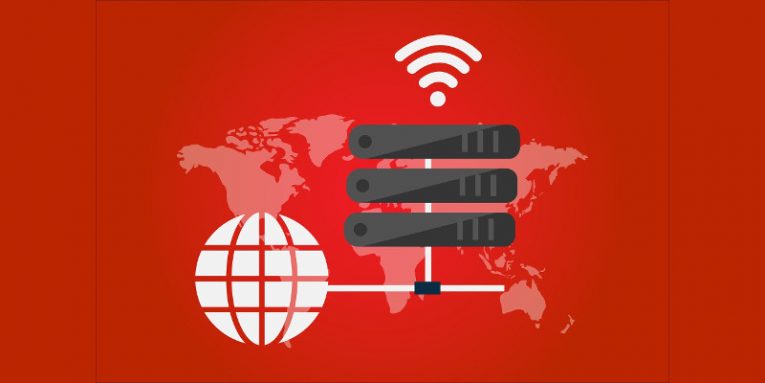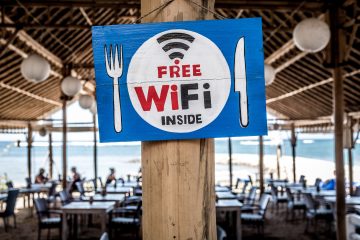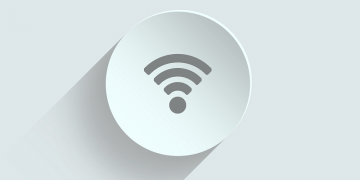What Is a VPN and How to Use It to Stay Safe Online?

You have probably heard more than a few times about virtual private networks (VPNs) and about how you should use them if you really care about your online security and privacy. Indeed, experts recommend the use of a VPN, and the growing number of solutions suggests that more people are heeding their advice. Nevertheless, the adoption rate is still relatively low which shows that for many of you, the concept of a VPN is something of a mystery. Let's try and change that.
Table of Contents
How does a VPN work?
First, we need to take a look at what happens when you type a URL in your address bar and press Enter without using a VPN. In simple terms, when you do that, your computer puts together a message that says "I want to visit this website" and then sends it through your Internet Service Provider (ISP) and on to the World Wide Web where it gets rerouted through a number of different servers before it reaches its destination. Finally, a response is generated which travels along the same route back to your PC, and you see the website you wanted to visit.
In other words, you have a lot of data that passes through multiple different parties who, in many cases, can intercept and read it. And we're not talking just about the URLs in your address bar. By connecting to a website, you're giving away your IP address and other details about your device, and simple activities like clicking buttons and filling in registration forms also generate data that flies around. Without a VPN, many individuals can often intercept and abuse it.
With a VPN, things are rather different. First of all, all the traffic that comes out of your machine goes through a server that belongs to the VPN provider. The purpose of this is to hide your IP address and strip away any information that the bad guys might use to trace their way back to you. In that sense, a VPN acts like the good old proxy you're probably familiar with. There is one crucial difference, though.
Before even a single byte of data goes out of your device, the VPN software encrypts it meaning that it's completely unreadable to your ISP and any people that might have inserted themselves "in the middle". The idea is that both the security and the privacy problems are addressed with one single solution. Or are they?
Can a VPN guarantee your online security?
No, it can't. The data that travels between your device and the VPN provider's server is encrypted, but if the online service you're trying to access doesn't support HTTPS, from then on, your details could be exposed.
You also have to think about the provider you choose and the technology it uses. There are several different VPN protocols that govern the way your information is encrypted and handled, and predictably, some are not as secure as they should be. When you're picking a provider, you must make sure that it supports either OpenVPN or IKEv2.
Generally speaking, legitimate VPN providers wouldn't want to risk their users' security, but it pays to do your homework and be diligent when picking the one you want to use.
Can a VPN guarantee your online privacy?
No, it can't. When it comes to privacy, things are actually quite complicated. As you may or may not know, there are a number of VPN solutions on the market, with some of them available free of charge and others offered via a subscription model. You should read the privacy policy of any service you're considering, but when it comes to the free VPNs, you should be especially careful.
As Onavo, the free VPN service offered by Facebook, demonstrates, free virtual private networks don't exist for the convenience and security of the users. They exist because some people want to make money, and if they can't make money through subscriptions, these people often resort to collecting and using or selling user data. Before you pick a VPN provider, make sure you go through all the fine print and see if you'll find out what sort of information you will give away by using the service. Reviewers that specialize in this type of software pay extra close attention to this, so be sure to hear what they have to say as well.
Even if you're happy with the privacy policies, however, you still need to consider the purely legal implications of having all your online traffic going through a single provider. If law enforcement or government officials decide to check out your browsing habits, for example, they could turn to the VPN provider of your choice, who, in turn, might be legally obliged to cooperate. Even if the VPN provider is located abroad, diplomatic agreements could still allow the government in your country to get to your data.
Do I need a VPN?
Having read through all this, you might think that we have a "jack of all trades and master of none" kind of situation. That's not the right way to look at a VPN solution, though.
While using a VPN service has its potential pitfalls, going about your online tasks without one isn't exactly risk-free, especially if you're connected to a random airport's free Wi-Fi network. A VPN is a layer of security which is often indispensable and can make the difference between staying safe and having all your data taken away from you.
Not all VPN providers are legitimate companies that work for the greater good, though, and not all of the good ones have the perfect solution for you. Due diligence before picking a service is essential.








